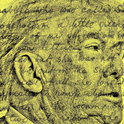The stand-off between Downing Street and the BBC is well known, as are the scratchy relations with the national press. But now politicians are even starting to get cross with novelists. In a recent essay in the Financial Times magazine, former Europe minister Denis MacShane complained that Jonathan Coe's The Closed Circle reads like "a kind of unending London Review of Books whine on the events in Britain in the last few years." MacShane demanded to know why Coe and his contemporaries are incapable of writing about politics: "the very serious use of power undertaken since 1997, the mammoth changes in the way Britain is governed, its international profile, its attempts to rebalance social relations in favour of more fairness"—all this, MacShane argued, surely merits an attempt at art.
Novelists, alas, do not seem to be rising to this challenge. Instead, Jonathan Coe's arch old Labour protagonist sums up the political history of the last eight years thus: "The left's moved way over to the right, the right's moved a tiny bit to the left, the circle's been closed and everybody else can go fuck themselves."
Likewise on television it is conventional wisdom that New Labour was born out of a Faustian pact whose signatories sold their socialist souls to the devil of electoral success. From The Project and The Deal to State of Play and BBC4's new political satire, The Thick of It, the story is repeatedly told. Peter Mandelson, recognising the power of this kind of drama, complained that The Project (first screened on BBC1 in November 2002) was biased, inaccurate and corrosive of public trust ("Would the producers know one end of a national minimum wage from another?").
Armando Iannucci's foray into political television may not have the high-minded pretensions of earlier New Labour dramas, but it peddles the old story of spin and betrayal, albeit with comic brilliance. The Thick of It—largely written by Iannucci's collaborator Jesse Armstrong—features a hapless minister, Hugh Abbot (Chris Langham), secretary of state for social affairs—and his team of useless yet manipulative civil servants. Like Yes, Minister, it is very male—all backslapping and backstabbing—and set in a department which is the home of a million barbs but very little policymaking.
In episode one, Abbot and his advisers are on their way to a press conference when the policy initiative they are to announce is suddenly withdrawn by No 10. They are trapped in the back of a car, racing towards the nation's hungry media with nothing to feed them. Abbot begs for ideas. "You want something that's sexy and eye-catching and free and universally popular and instantly applicable?" asks his special adviser Ollie (Chris Addison). "Well, you should have said something before: those sorts of policies are ten-a-penny—our manifesto is more or less made up of them."
This is the first joke of the series: policy is fabricated on the hoof, with no sense of an overarching framework, either ideological or managerial. In episode two, an entire strategy is built around the comments of a focus group member who turns out to be an out of work actress. When the prime minister's enforcer, Malcolm Tucker (played on a single, barking note by Peter Capaldi), hears that the press are on to the story, he goes wild, assuming that the woman is a plant.
This is the second joke of the series. Whereas the birth of spin was charted in Yes, Minister, spin is now in its dotage. "On the fuckometer, where am I?" Abbot asks, querulously, in the third joke of the series: that the only thing government has time for, in this age of meta-spin, is crisis management. Rather than attempting to impose meaning on the world beyond Whitehall, government is far too busy trying to knock its own house into order.
Just as sophistry was the signature of Yes, Minister, so frantic bursts of swearing characterise the department for social affairs. Every conversation is punctuated with alpha-male bravado. "We don't exchange insults with bloody Simon arsepipes tittytwat," proclaims Abbot's mother-hen press secretary, played by Joanna Scanlan. Her male colleagues stare at her. "Is that the best swearing you can do?" asks Ollie, in disgust. "This is a bucket of shit," intones a more assertively belligerent colleague: "If someone throws shit at us we throw shit back at them; we start a shit fight, we throw so much shit at them they can't pick up shit, they can't throw shit, they can't do shit." They all settle back into their chairs, soothed by this outburst. "Good swearing," says the minister, appreciatively.
This institutional logorrhea echoes the notorious outburst of Richard Mottram, permanent secretary at the department of transport during the Jo Moore "bury bad news" scandal of 2002: "We're all fucked. I'm fucked. You're fucked. The department is fucked. It's the biggest cock-up ever. We're completely fucked." Unsurprisingly, Martin Sixsmith—former head of press at the same department, who was forced to resign following the leak of internal emails—had a hand in The Thick of It, which would have been both funny and original if it had come out four years ago. Now it is just funny: nostalgia television, set during the ascendancy of Alastair Campbell, before the downfall of Jo Moore, in those years when New Labour was no longer a novelty but not yet under threat.
The Thick of It paints about as accurate a picture of the inside of a government department in 2005 as Ben Jonson's The Alchemist gave of a pharmacy in 1605. Its easy familiarity is the flipside of its lack of prescience, its failure either to record the complex business of government since 1997, or to anticipate its future development.
But the series is only incidentally about politics. It is part of a long tradition of English comedy about the moments when adult life gives way to the laws of the playground—the same moments which animated Armstrong's previous series, Peep Show, in which two feckless twentysomething males sought security in their protracted adolescence. Peep Show was hardly about politics but, like The Thick of It, it was about men failing to cope under pressure. Iannucci and Armstrong have created a memorable piece of television, which happens to reinforce a clichéd vision of politics. Just as, in the early 1980s, Yes, Minister defined Westminster and Whitehall in the corporatist terms that Margaret Thatcher was then busy destroying, so The Thick of It sees politics through a rear mirror, darkly.
Similarly, Jonathan Coe did not set out to write the great parliamentary novel—the new Trollope that MacShane wants. He set out to produce a book on the themes that preoccupy him as a novelist. The way he describes it, New Labour merely got in the way. When I asked Coe about this he explained that a "large part of the novel is not political at all, but is concerned with how people in early middle-age relate to their younger selves and reach an accommodation with their personal histories." Nonetheless, there is a little bit of politics in there, isn't there? "When the novel takes on 'political' terrain, the aim is to describe how the policy decisions which emerge from parliamentary processes impact, indirectly but powerfully, upon the lives of those of us outside that system," he explains. In this respect, The Closed Circle continues the preoccupations of Coe's What a Carve Up!, which dissected Thatcherism to the satisfaction of the left.
Coe's apologia does leave some questions unanswered. Why is the impact of politics on people's lives so uniformly unpleasant? Does he know one end of a tax credit from the other?
Yet what self-respecting novelist is going to jump to MacShane's challenge to produce a celebratory New Labour novel? Certainly not Ian McEwan—for all his sympathy for the government's line on Iraq. In a key scene in Saturday, McEwan's new novel set on the day of the anti-war march in 2003, his protagonist encounters the prime minister at a gallery opening. Blair claims to recognise him. "You're making a mistake," says Perowne, a successful neurosurgeon, but Blair refuses to be deflected: "In fact, we've got two of your paintings hanging in Downing Street," he insists. "Cherie and I adore them." He has seemingly mistaken Perowne for a painter—an easy mistake to make in an art gallery. With the crowds of journalists and photographers pressing around him, Blair is swept on.
McEwan makes a great deal of this exchange, which is apparently based on a real encounter he had with the prime minister at the opening of Tate Modern. His neurosurgeon is ideally placed to bear witness to the "look of sudden alarm, of fleeting self-doubt" that crosses Blair's face. "No one else saw his expression freeze and his eyes bulge minimally. A hairline fracture had appeared in the assurance of power."
But what if McEwan got it wrong? What if he misunderstood what Blair had meant when he said he had his picture hanging on the wall: "I know you, Ian McEwan, celebrated novelist. In fact, there is a photograph of you, borrowed from the National Portrait Gallery, displayed in Number 10"? This is the spin that Downing Street puts on the story. Does it matter that the egg may be on McEwan's face? Does it diminish his novel's portrayal of the impact of arguments about Iraq on families across Britain? Obviously, no one told McEwan that, along with his advance, came the commitment to produce a fair portrayal of the government's achievements in office, or of the prime minister's infallibility.
What does it matter if novels and television series refuse to "do" politics accurately, or do it in terms that are out of date? They don't purport to convey the truth. On the other hand, neither do they carry health warnings. Many of BBC4's viewers seem to believe that its wonky camerawork and improvised dialogue give The Thick of It some kind of documentary verisimilitude. The BBC4 website is full of credulous comments: "It really does work like that"; "a true insight into how we are governed"; "don't laugh, it is true."
Comments like these seem to bear out MacShane's fears that cultural representations can poison the public imagination. Yet there is a wider aesthetic problem here, too. For whereas previous generations of politicians were the subject of a wide variety of stories, New Labour is on the receiving end of only one plot. It is one of the oldest stories going—the pact with the devil—and it has become inextricably linked to Labour's major act of revisionism in the 1990s, and the two-step with the media which followed.
It is not surprising that Labour politicians would rather read Trollope. His parliamentary novels of the 1860s and 1870s celebrate politicians who, like Trollope himself, are morally incapable of paying the price necessary for political success. For MacShane, Trollope's "novels remain the best commentary on how MPs, parliament and British politics work." Yet, in his day, Trollope was mocked for being unrealistic. Contemporary reviews of The Prime Minister—now considered the exemplary portrayal of an honest man broken by politics—sneered at its misplaced idealism. Hugh Walpole later described it as "one vast draught, scraps of political papers blowing down empty corridors before a ghostly breeze."
No wonder that Labour politicians—tired of the claustrophobic representations of themselves in our culture—still find that breeze refreshing.











